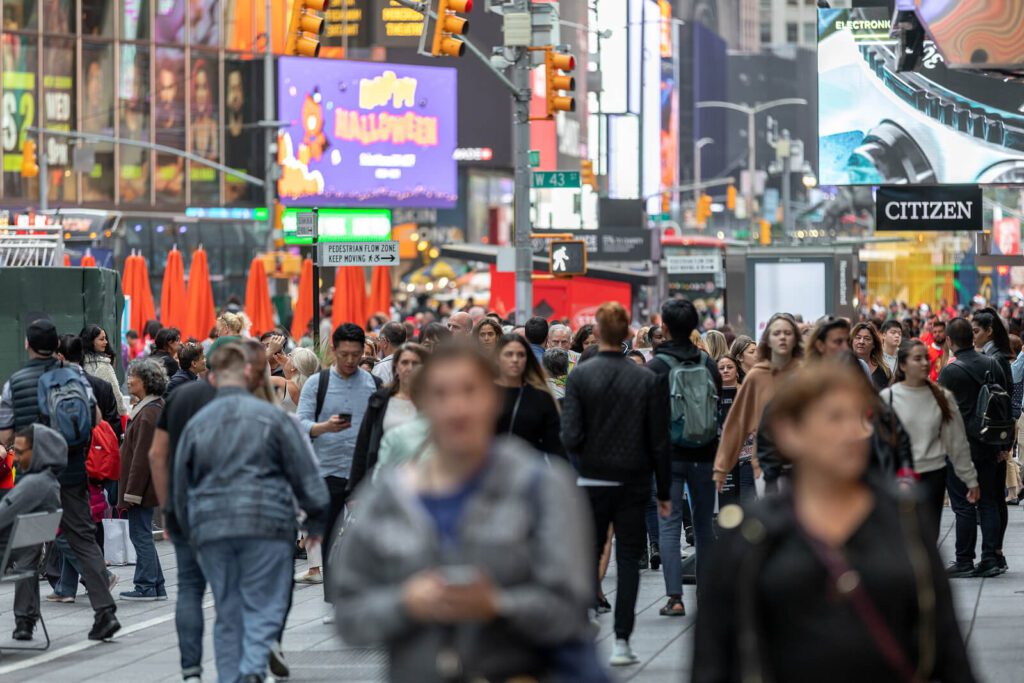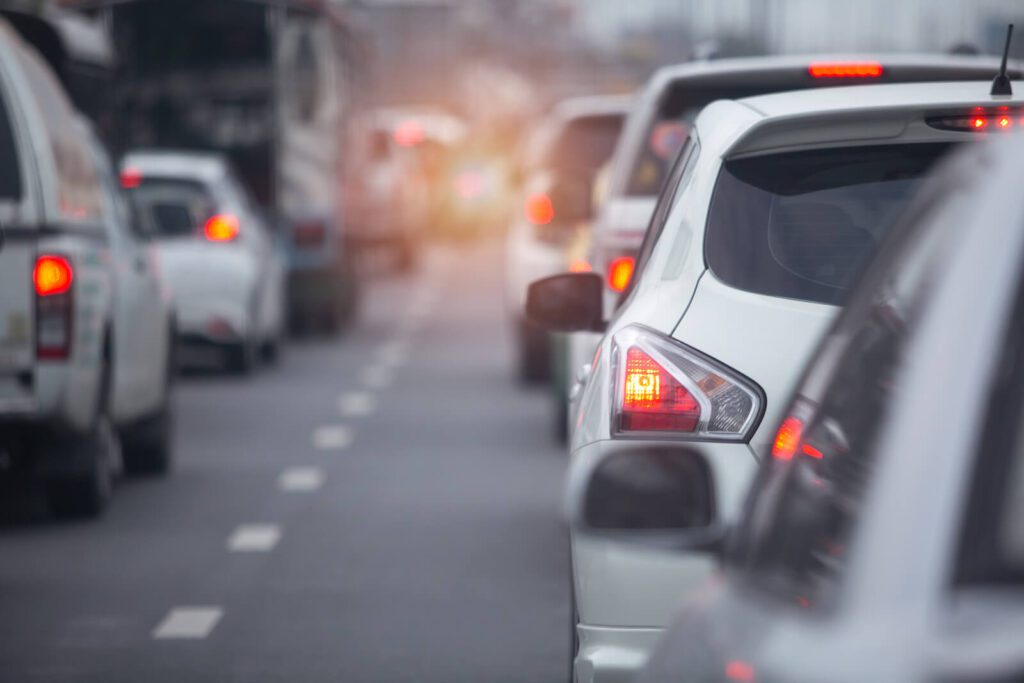By Madison Weber MHC-LP, Associate Psychotherapist
Are you new to a big city?
Experiencing an increase in anxiety as the pandemic wanes and big cities return to some semblance of normal?
Realizing that life might look different as the city comes out of its hibernation and spring looms?

Exposure to Constant Stimuli
Living in a big city means managing the constant stimuli that come with the territory. From the bustle of commuters and the influx of tourists to crowded commuter and subway trains and buses and the constant sirens of emergency vehicles, it can be extremely challenging to manage anxiety.
These stimuli are often accompanied by the additional stressors of increased expenses for city living, along with possible additional safety concerns and relying on public transportation to get you places on time.
Take a moment to notice your heart rate when you step onto a cramped subway car. Take note if your stomach is in knots when you hear sirens on the street. Maybe you’ve been noticing increased headaches or body aches since moving to a big city. These physical symptoms may be your body’s way of letting you know that it is stressed, on high alert, and signals that anxiety is taking hold in your body.
Anxiety and the Body/Mind Connection
Your brain and body work together to process anxiety and stressful stimuli.
First, your brain perceives a situation as being stressful. Next, this causes your fight or flight response to launch into action. Which, in turn, sends a signal to release cortisol, a stress hormone, into your bloodstream.
In order to experience relaxation and calm, you need to bring that cortisol level back to normal. This will likely be a difficult task when you are constantly being barraged by city-living stimuli that are triggering your fight-or-flight stress response.

Stressors Impact Everyone Differently
Since everyone is unique in their sensitivities, the stressors of city stimuli may impact some people more than others. This can lead to increased difficulty in winding down or finding peace. Research shows that people living in urban areas are 20% more likely to experience symptoms of anxiety than people living in rural areas.
If you are someone who is considering moving to a new city or has recently moved, keep in mind that such a transition can have a major impact on your level of anxiety, at least to begin with.
Tools to Help Manage the Transition to City Life
There are some tools you can apply to help manage this transition and promote a long and high quality of life in a busy city.
Nature
Whether it’s as big as Central Park in New York City or a small public garden in your neighborhood, use green spaces to your advantage.
All it takes is a few minutes of movement outside or just sitting in the quiet of nature to help calm your nervous system. Notice your breathing and body sensations as you explore nature in big cities. A ten-minute respite in a natural space can be enough to decrease anxiety levels.
Studies have shown that taking a break in nature can help lower levels of the stress hormone, cortisol. You can reduce anxiety levels even further by combining time outside with some type of exercise or movement.

Sleep
Anxiety can often come hand in hand with sleeping-related challenges. This may look like insomnia or feeling like your thoughts are racing no matter how desperate you are for sleep to come.
You may notice that after a day of city life, it can be challenging to wind down when it’s time for bed. And, since most big cities “never sleep,” late-night sounds can make sleep hygiene a challenge.
So, as your body processes the cortisol from the day, it is also generating continued stress hormones as you try to wind down at home. This can become a cyclical struggle because sleep struggles stemming from anxiety will leave you sleep deprived which–you guessed it–only leads to more anxiety and irritability.
Working toward regulating sleep patterns and sticking to a sleep schedule is a critical part of managing the anxiety that may accompany city living.
Anxiety Therapy
Seeing a therapist can be a great help for someone struggling with anxiety while living in a big city.
Besides the obvious stressors that come with city life, each person also has their own unique set of life experiences and circumstances that may be contributing to anxious thought patterns. Anxiety therapy can provide a safe space for you to understand more about your specific anxiety triggers, as well as any underlying fears that might perpetuate anxiety and affect your quality of life.
Anxiety therapy can also teach relaxation and coping techniques for managing and possibly reducing your anxiety symptoms. While you can receive general tips and tricks from blogs or the internet, anxiety therapy provides a personalized, tailored approach to understanding your specific situation and experience with anxiety.
Are You Ready to Start Anxiety Therapy in NYC?
Anxiety is the most common mental health challenge in the United States. If you live in a big city and are struggling with anxiety, know that you’re not alone, and professional support is available. At Inside Psychotherapy we have a skilled team of therapists that are ready to help you break the cycle of anxiety. Follow the steps below to get started!
- Learn more about our skilled team of therapists here.
- Fill out our convenient online contact form.
- Begin the journey to a life free from anxiety!
Other Therapy Services Offered at Inside Psychotherapy, NYC.
In addition to Anxiety Therapy, we offer a wide variety of therapy services designed to meet you where you are in your life. We also offer services both online and in person. We also utilize several different treatment modalities including CBT, Eclectic Psychotherapy, Mindfulness, and Solution-Focused Brief Therapy. Our services include therapy for:




